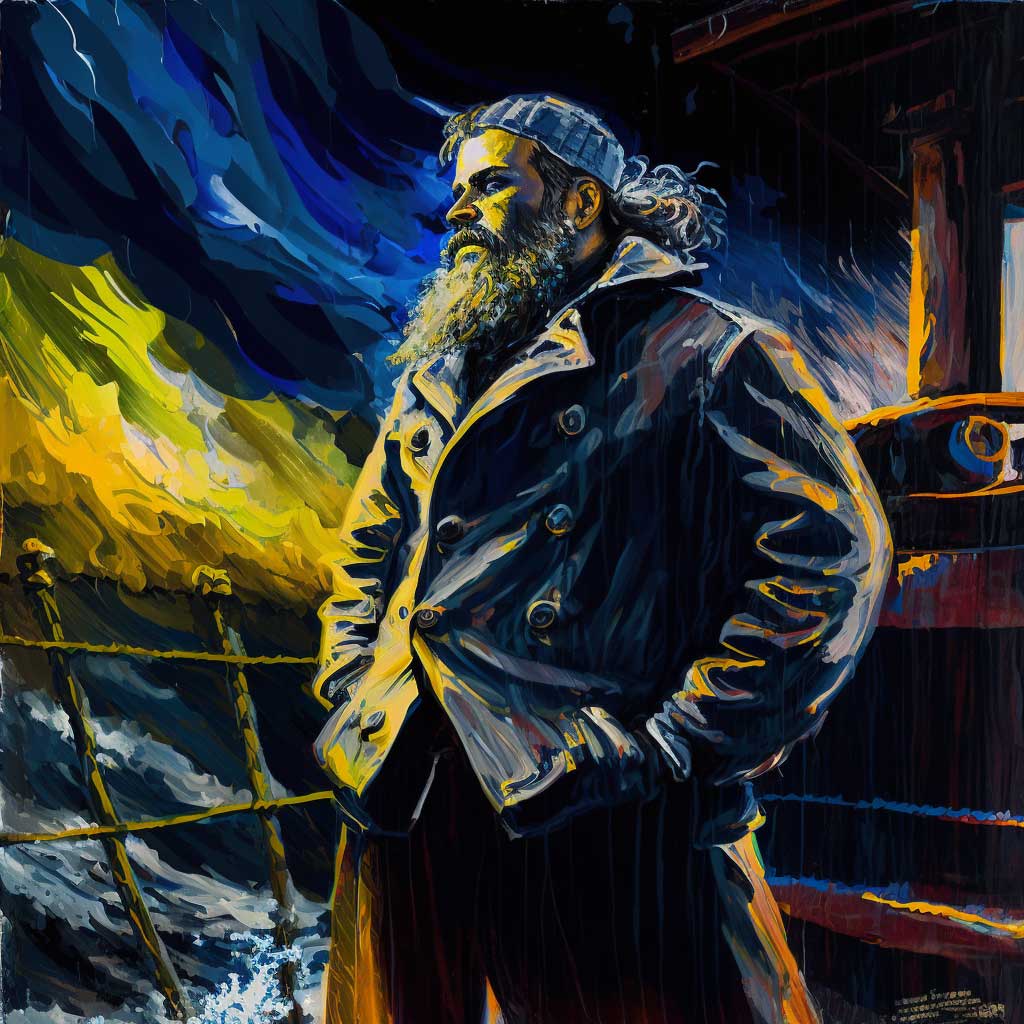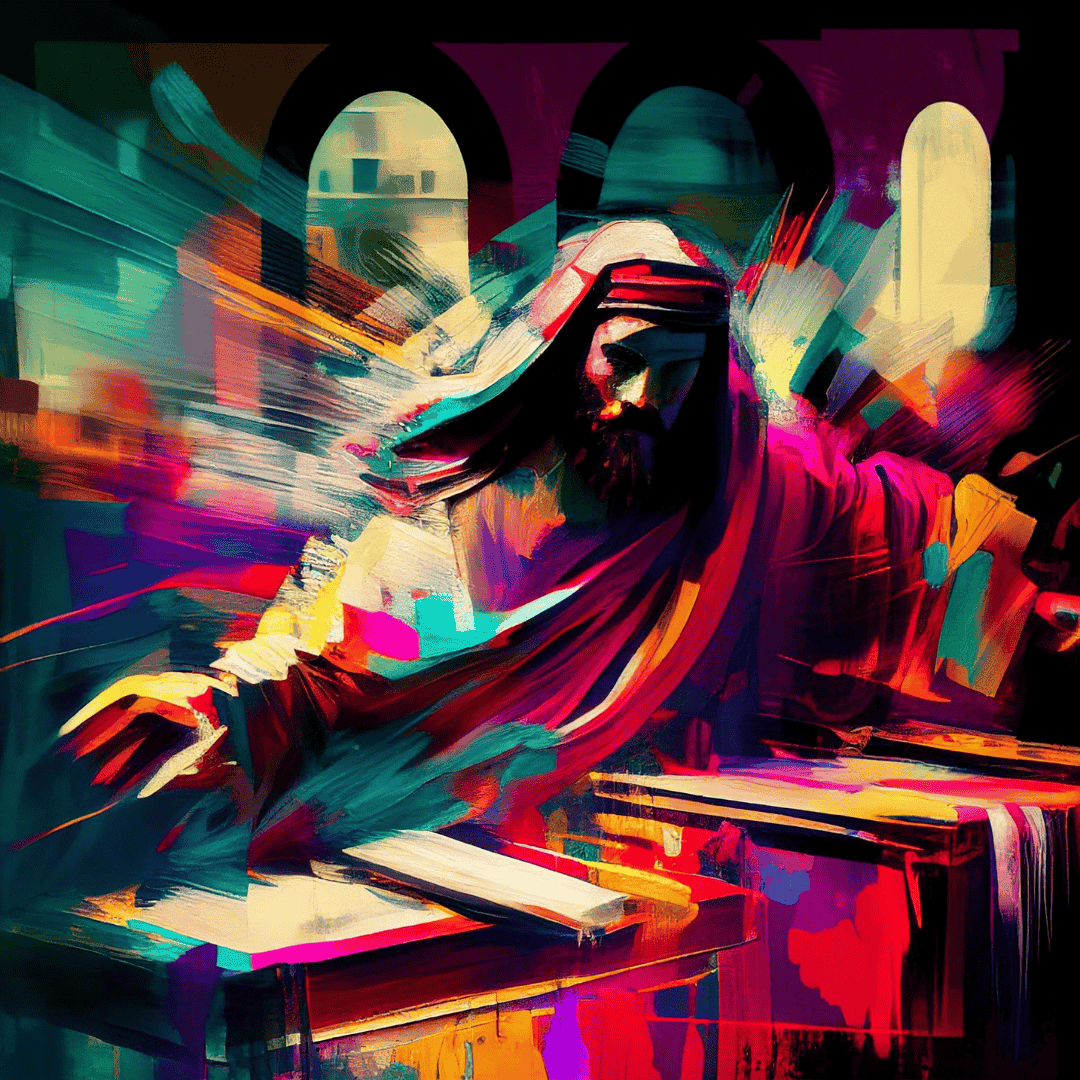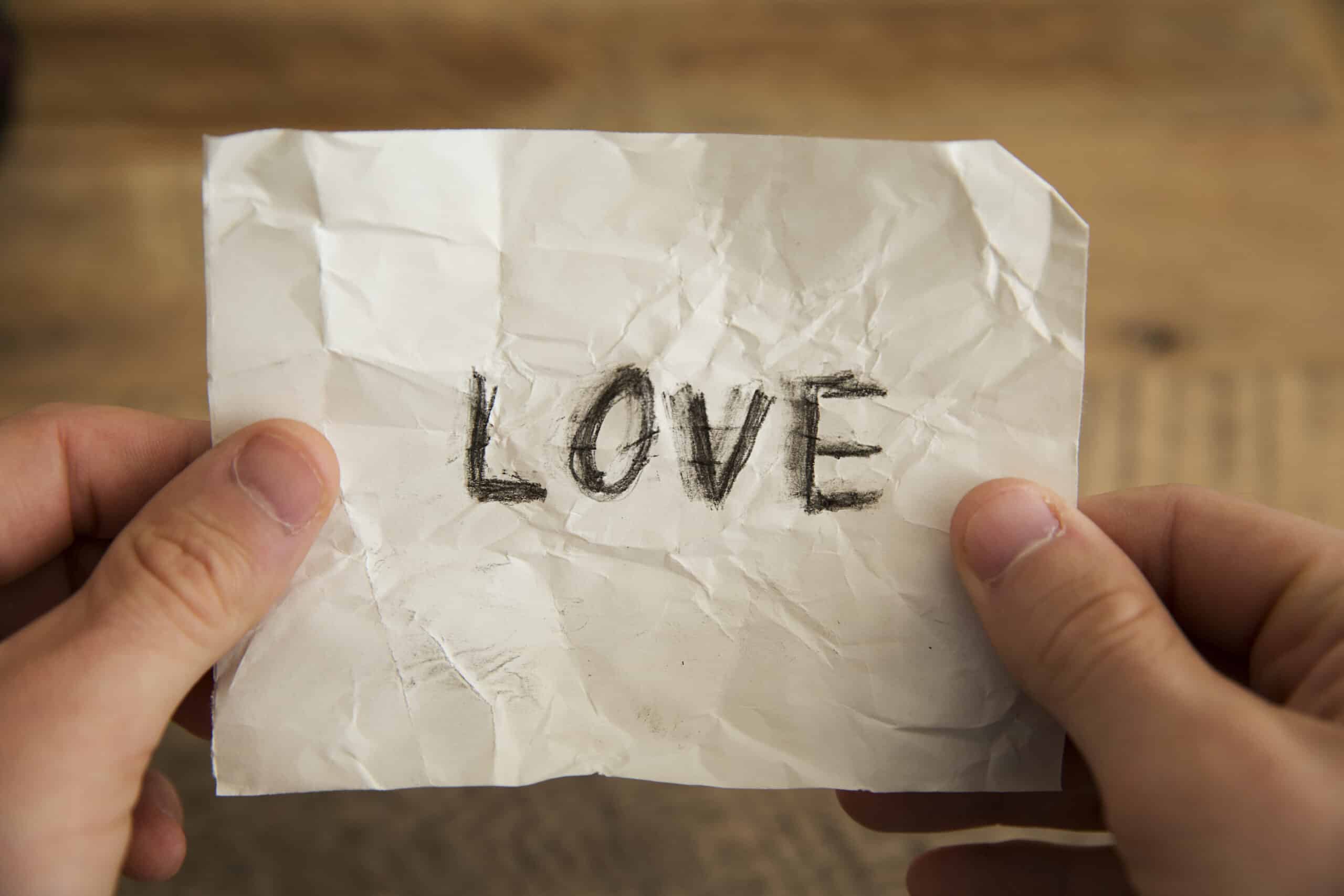
By Dr. Wayne Brouwer
December 19, 2023There is a powerful scene in Herman Melville’s great epic, Moby Dick, where Captain Ahab stands peg-legged on the deck of the Pequod during a violent storm (chapter 119). His obsession with the White Whale has carried the craft and crew to exotic and frightening locales, and now it seems as if divine Providence might be unleashing furious anger against this ill-fated quest. But Ahab is a fighter, and with clenched fists, amid the lightning bolts and against the raging thunder he yells a taunt at the Creator who chastens his cause: “I now know thee, thou clear spirit, and I now know that thy right worship is defiance.”
Yet even Captain Ahab, torn by his demons and captured as much by the Whale as he seeks to capture it, knows that there is a need greater than victory and a power more tenacious than brutal force. He falls to the deck in a tormented confession: “But war is pain, and hate is woe. Come in thy lowest form of love, and I will kneel and kiss thee…” He almost pleads with God to stop the awful battering of antagonistic powers, and descend in kind humility so that the passions of love might be reborn and rekindled again.
This is a marvelous bridge between the bellicose prophecies of the Old Testament and the juxtaposed incarnation of Jesus that emerged out of them. God did indeed come down, like God had done in the times of Moses and the Pharaoh. But this time God chose the suckling child rather than the plague blasts as the means of arrival and encounter. We who marshal our forces for good or for evil are suddenly caught up short—the One who could “rend the heavens” and “set twigs ablaze” and “cause water to boil” and “cause the nations to quake” and make “the mountains tremble” slipped in as a helpless child, and the world knelt to kiss him on a starry night in Bethlehem.









